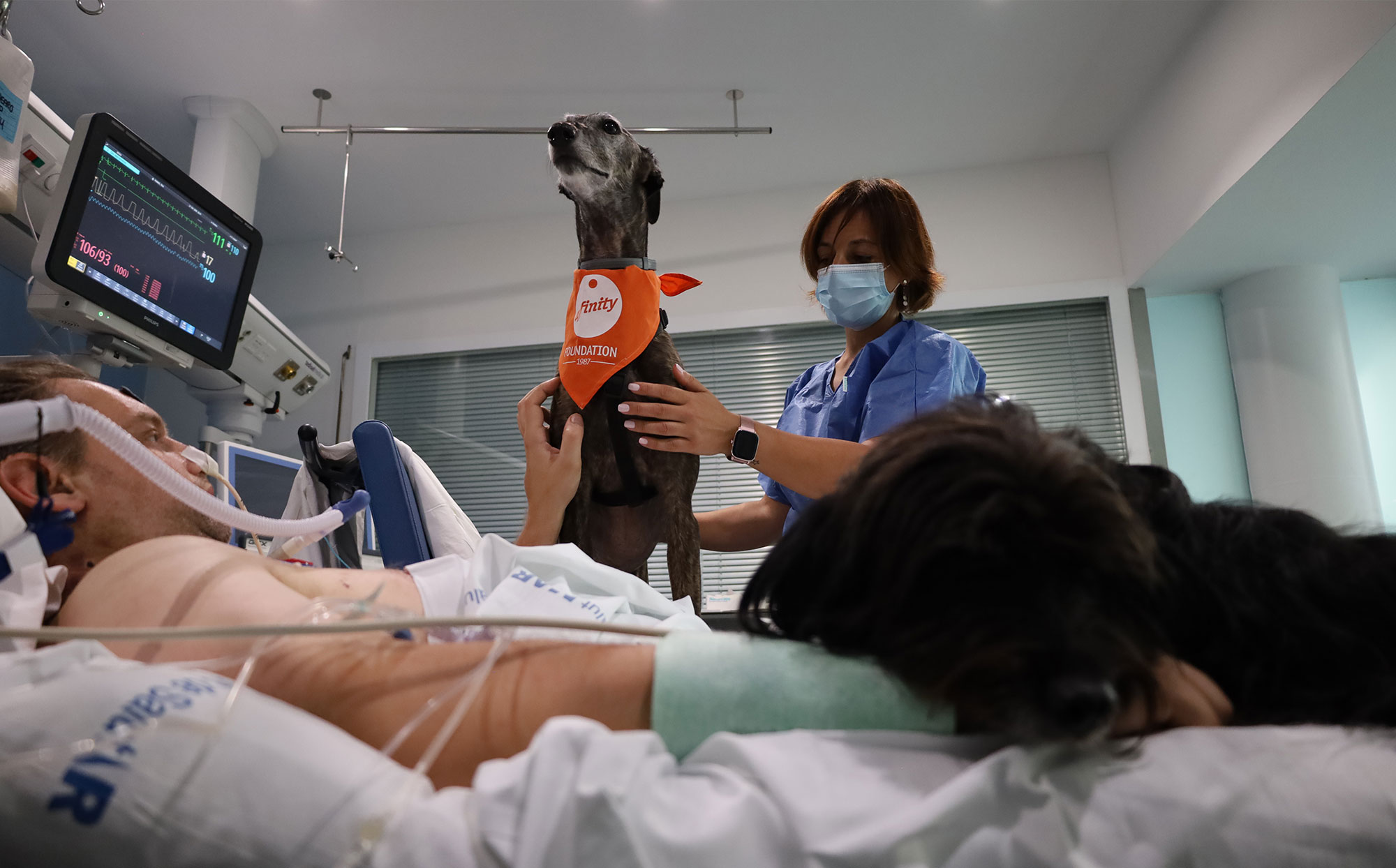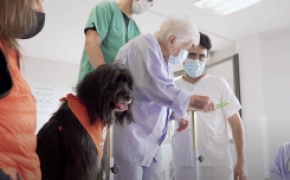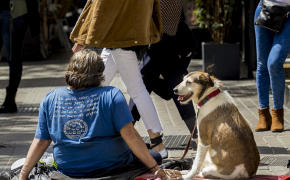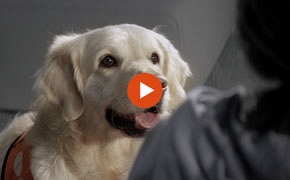Therapy dogs for patients in the ICU

The Affinity Foundation and the Hospital del Mar in Barcelona are launching a groundbreaking programme with therapy dogs to show how animals help improve the well-being of patients admitted to the ICU.
The Hospital del Mar in Barcelona is one of the first hospitals in Spain to allow a team of therapy dogs to accompany patients admitted to the Intensive Care Unit. This groundbreaking initiative seeks to improve the mood of patients through interaction with the dogs, creating an environment in which the patient can benefit from the bond between animals and people. In this regard, Maribel Vila, head of therapies at the Affinity Foundation states that "the benefits of animal-assisted therapies have been demonstrated in other fields of health and we believe that this type of activity can considerably enhance the patient's state of health, improve the atmosphere in the ICU and make their stay a little more pleasant".
This therapy programme has the scientific backing of the Affinity Animals and Health Foundation Chair of the Autonomous University of Barcelona the Intensive Care Medicine Department of the Hospital del Mar. Together, they will conduct research into how therapy sessions with dogs affect various indicators, improving well-being and reducing stress. To do this, saliva samples will be collected from patients before and after interaction with the animals and analysed by the Advanced Applied Metabolomics Research Laboratory (LIMA) of the Hospital del Mar Medical Research Institute.
Therapy sessions with dogs
The programme envisages sessions of 15 to 20 minutes per patient, twice a week and only for patients who have been admitted to the ICU for more than 7 days. In each session, patients will be able to interact with the animals depending on their health and mobility, in a friendly environment that enhances their comfort and provides them with additional stimulation through contact with the dogs. Dr Irene Dot, assistant at the Intensive Care Medicine Department and coordinator of the hospital's humanisation programme, explains that "non-pharmacological therapies, such as therapy with trained dogs, aid rehabilitation, improve the patient's emotional state and can have a positive impact on their recovery".
The sessions follow strict therapeutic protocols established by the hospital and the dogs "are in perfect physical and mental health and are constantly supervised by veterinarians specialised in animal welfare and behaviour," states Dr Jaume Fatjó, director of the Affinity Animals and Health Foundation Chair of the Autonomous University of Barcelona.
The team is made up of the Foundation's technical staff and two therapy dogs, which will be responsible for carrying out the sessions with the patients participating in the programme.
According to the director of the Affinity Foundation, Isabel Buil, "this programme not only benefits patients, families and the medical team, but also enables us to continue removing barriers for animals and demonstrating their beneficial role in society".




